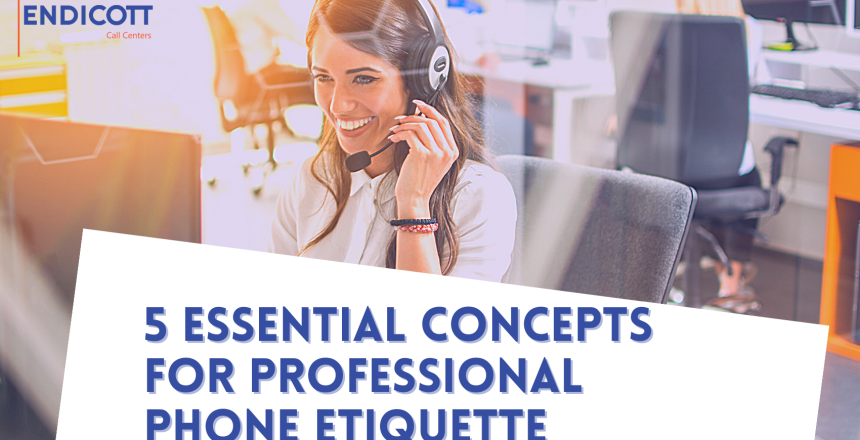Most customers’ and clients’ first contact with any business is a simple telephone call. You must be professional when you are on a call representing your business. However, “being professional” can be defined differently depending on whom you ask.
Yet, there are some essential concepts to “being professional” on universal calls. Here we will look at five crucial rules of professional phone etiquette.
#1 Speak Clearly
One of the most important things you can do on a call is to speak clearly. You want to talk slowly enough so that it is easy for the caller to understand every word. You also want to speak loud enough so the caller can hear you without any background noise or a less-than-ideal connection.
Maintaining a calm and respectful tone is part of professional phone etiquette, regardless of how a caller speaks to you. Doing so can often be challenging in certain situations, but it is an absolute must. Call center agents are trained for this particular scenario and have lots of experience dealing with unhappy or upset callers.
#2 Answer Calls in a Timely Manner
You want to answer all calls promptly. When a customer is calling and not getting an answer, or the line rings endlessly, it is not a good first impression. This type of experience can taint an otherwise positive experience with your company. It would be best if you tried to answer all calls within the first three rings.
If staff cannot keep up with the incoming calls and calls are being missed, you can outsource overflow calls to a call center such as Endicott Call Centers. You can also utilize a call center to answer all incoming calls and transfer calls directly to the proper employee if needed.
#3 Listening is a Priority
While helping the caller is the main priority of most calls you will receive, we must thoroughly listen to the caller and fully understand the issues. To do this, you must give the caller 100% of your attention and use active listening to ensure they communicate their needs properly.
Active listening is a skill set that call center agents take professional phone etiquette training for. Listening correctly and using active listening skills to keep a caller talking and elaborating on the issue allows the agents to adequately address the caller’s problem.
#4 Develop A Personal Connection
Potential customers often call dozens of companies when researching or quoting a project. In these situations, making a personal connection with the caller can help set your company apart from the rest of the pack.
Additionally, developing a personal connection with a caller puts them at ease and can help them feel comfortable enough to express all of their concerns. Once they have fully expressed their concerns, it gives you a chance to address them adequately.
#5 End The Call Appropriately
How you end the call matters is just as important as your overall conduct in professional phone etiquette. You always want to make sure that you ask the caller to make sure you have helped them with everything they needed. If a request could not be handled, you want to make sure that you explain in detail why.
It is vital to end the call on a warm and friendly note. You want a customer’s last memory to be a friendly employee, not someone trying to end the call quickly.
How Can Endicott Contact Centers Help Your Business?
Learn more about our various call centers and answering services to match your business needs. Endicott can increase your call center performance and efficiency, lower operational costs, and create new sales opportunities for your business. We are ready to support your customer support outsourcing and be an extension of your brand! Request your quote today!

